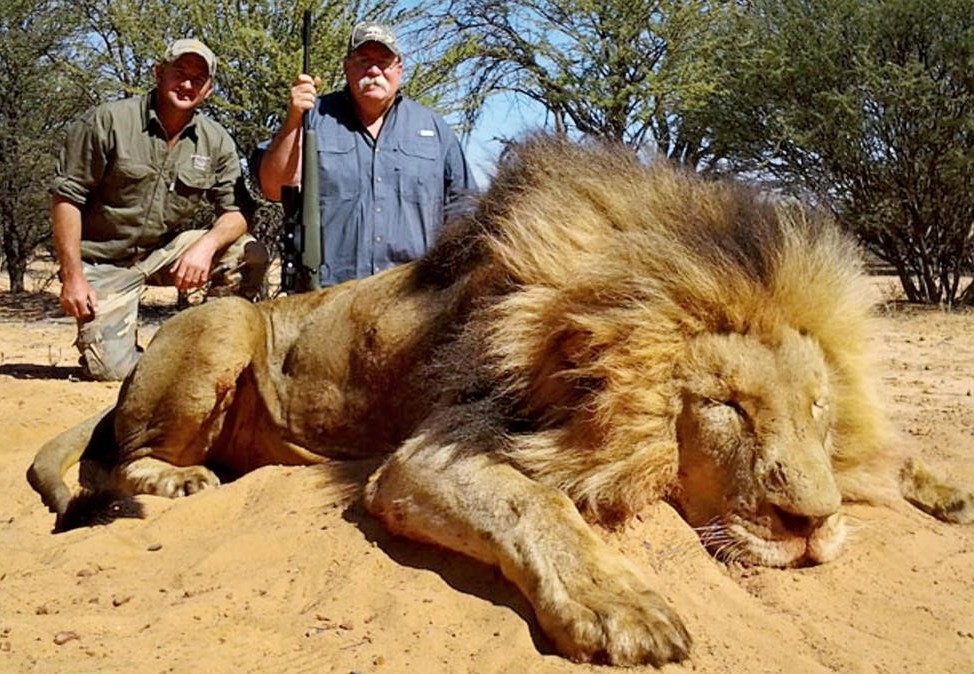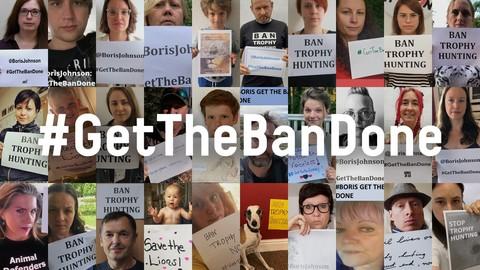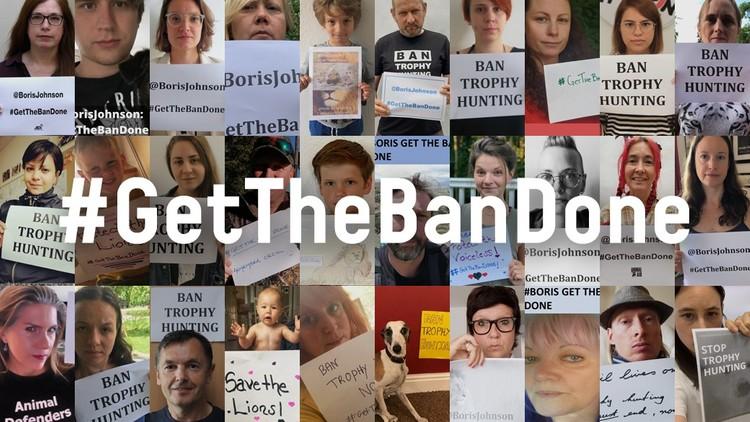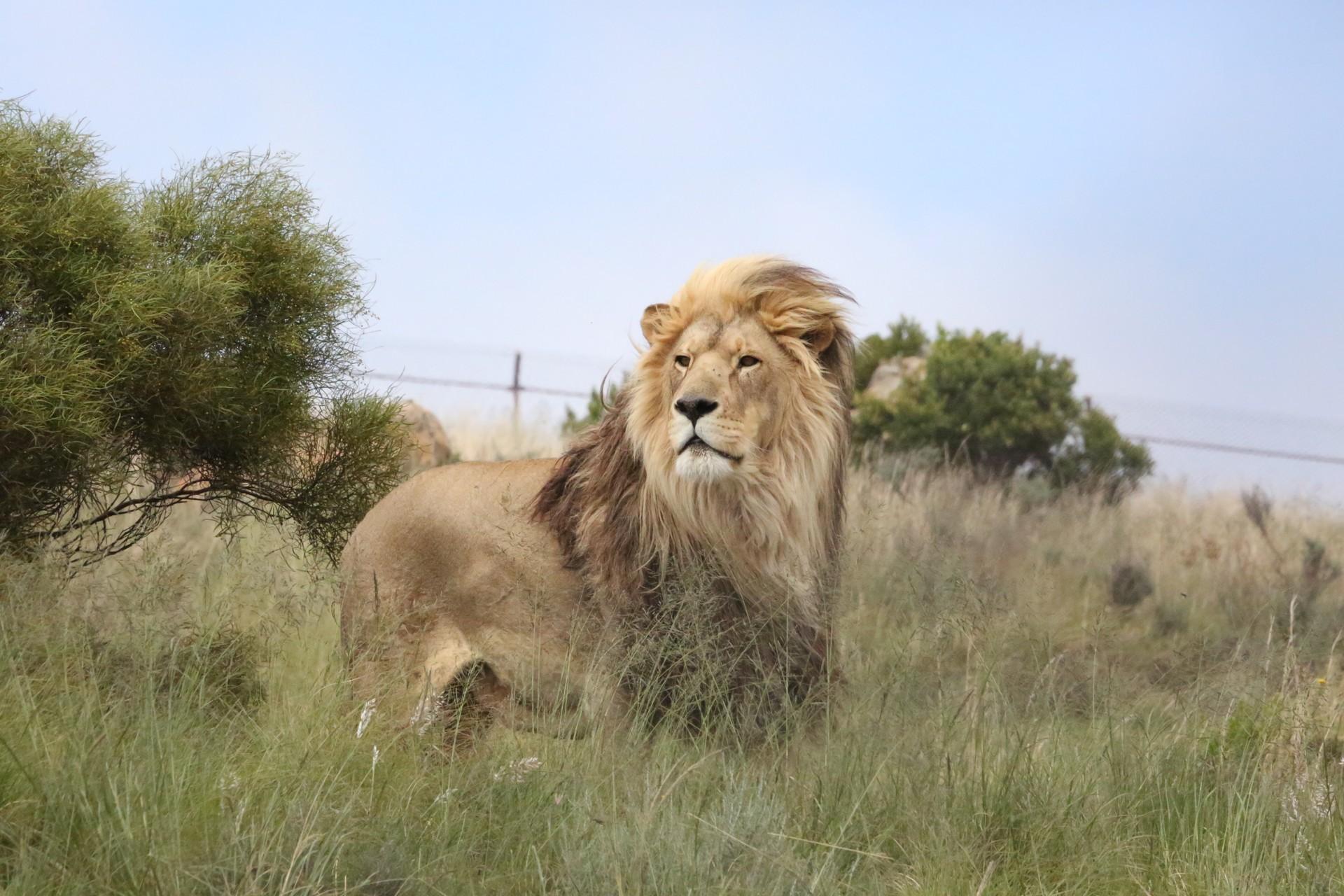
Trophy Hunting – A very British contribution
Thousands of wild animals murdered by British hunters, for a grim trophy and a meaningless record.
With trophy hunting hinged on exotic animals not native to the British Isles, it’s easy to convince ourselves it isn't a UK problem.
Although these hunts don’t take place on our local soil, the truth is, many British citizens do make the journey across the globe to hunt ‘big game’ for fun.
In fact, since the 1980s hunters hailing from the UK have shipped 5,000 trophies from CITES-listed animals back home.
CITES (Convention on International Trade in Endangered Species) is an international agreement between governments that protects endangered animals (and plants) including lions, polar bears and hippos.
The most popular of these protected species shot by British trophy hunters is the African elephant. Since 1980, British hunters have brought back more than 1,000 elephant trophies and 1.3 tonnes of elephant ivory into the country.
5,000 trophies is already a huge amount, and the horror is only exacerbated when we factor in non-CITES protected species such as zebras, striped hyenas, and wildebeest. When all of these beings are considered too; the true kill count of British hunters could be as high as 25,000 animals.
The grim reality is that hunters from the UK have shot and brought home trophies from at least 70 different protected species, including endangered animals like rhinos or the Scimitar-horned oryx, which is now tragically extinct in the wild.
It’s no holiday
At their core these hunts are a business. Sold as luxurious ‘holidays’ in Africa and further afield.
And the appetite for it here appears clear, with British businesses among some of the top safari companies selling and operating trophy hunts.
From canned lion hunts, to hunting elephants and monkeys, the cost can range from £60 for a baboon, and up to £22,000 for a lion.
In fact, some regard particular London based businesses as leaders of the global trophy hunting industry, with an astonishing number of Safari Club International (SCI) records to their names.
As the world’s main trophy hunting association, SCI presents various awards to hunters who achieve certain ‘goals’.
Their record book explicitly encourages hunters to shoot the strongest or ‘fittest’ of the species and lists the areas where record-sized animals can be found and the hunting companies operating there. Hunters are also credited with world records relating to animals being killed with ‘novel’ hunting weapons, such as a handgun used to kill an antelope.
With records like this to be exploited, it is hard to see hunting as anything beyond a sorry sort of entertainment.




Let’s not join the club
Despite operating under the pretence of conservation, hunting like this is nothing more than a ‘sport’ for those taking part. Although with an armoury of weapons against an unknowing sentient being, it’s hard to see where the sporting aspect comes into it.
Scientists have warned that deliberately targeting the biggest and genetically ‘fittest’ animals' strips species of genes essential to its survival, particularly in the face of a changing and increasingly hostile environment as a result of climate change.
Lions have lost 15% of their gene pool over the past century. Hunting industry records indicate that the average size of lions may now be smaller than they were some 25 years ago.
Hunting industry data also shows elephant tusks are shorter than in the 1980s, with a growing number of adult elephants having no tusks at all.
When conservation of these glorious and iconic species is bandied around as a viable reason to hunt, why is it that we are changing the face of nature itself through the brutal and needless murder of fit, healthy animals that are strictly protected?
Despite the British Government announcing their plans to ban the import of illegal trophies, little movement has been made to secure this proposal in law since.
As a member of the Campaign to Ban Trophy Hunting coalition, we are deeply concerned about these repeated delays. Banning the import of hunting trophies has been a government manifesto commitment since 2019, with recurring mentions in the Queen’s Speech year on year. Frustratingly, three years on we still see inaction and radio silence.
We must act now to ensure we live up to our status as a nation of animal lovers rather than a nation complicit with placing profit and status above protection.
Let’s #GetTheBanDone once and for all.


